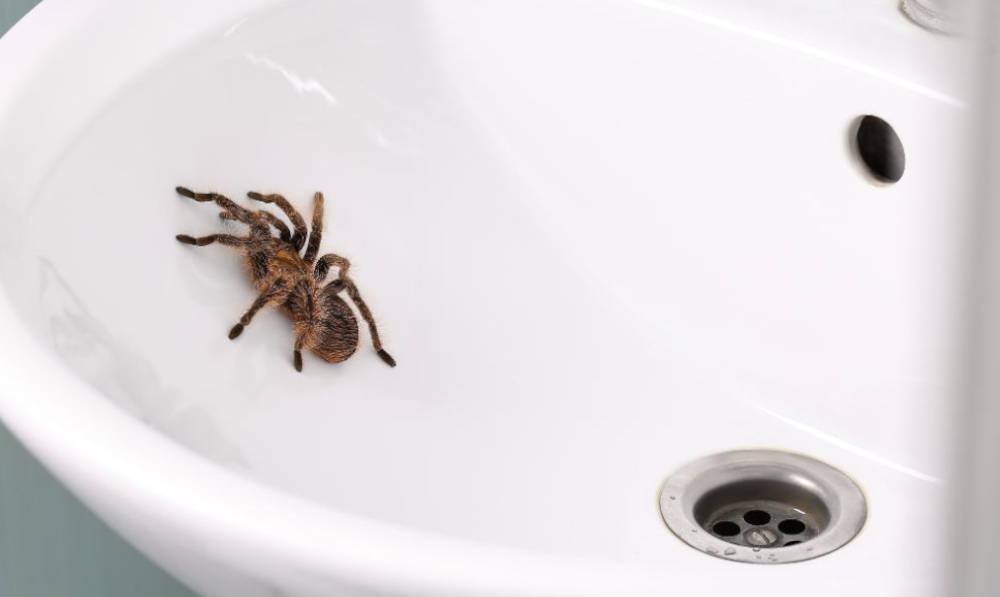KEY TAKEAWAYS:
Natural Pest Control: Spiders play a vital role in controlling insect populations in your home, reducing the need for chemical pesticides and promoting a healthier living environment.
Minimal Maintenance: Once established, spiders require little to no maintenance, making them a low-effort and sustainable pest control solution.
Caution with Venomous Species: While most spiders are harmless, it’s essential to exercise caution, particularly in regions where venomous species like the brown recluse and black widow are prevalent.
Addressing Allergies and Phobias: Individuals with allergies or arachnophobia should take necessary precautions and seek professional assistance if needed to manage their reactions and discomfort.
Balancing Aesthetic Preferences: While some may find spider webs unsightly, understanding the benefits spiders offer can help strike a balance between managing their presence and maintaining a healthy ecosystem within your home.
Spiders often evoke fear and trepidation in many people.
While they are commonly associated with Halloween decorations and horror movies, spiders play a significant role in our ecosystem, including within our homes.
Like any other living organism, they come with their set of benefits and risks. Understanding these aspects can help homeowners make informed decisions about spider management in their living spaces.
Benefits of Spiders in Your Home
1. Natural Pest Control
Spiders are nature’s pest controllers. They primarily feed on insects like mosquitoes, flies, moths, and even other spiders.
By having spiders in your home, you’re essentially employing a natural pest control team that keeps populations of other, often more bothersome insects in check. This can reduce the need for chemical pesticides, which can be harmful to both human health and the environment.
2. Low Maintenance
Spiders require minimal care. Once they find a suitable spot with ample prey, they tend to stay put. This means you don’t have to worry about feeding or attending to them in any way. They are self-sufficient creatures that can thrive in various environments.
3. Fascinating to Observe
For those not overtly arachnophobic, having spiders around can offer a unique opportunity for observation. Watching spiders spin their webs, hunt, and carry out their daily activities can be an intriguing and educational experience, especially for children.
It provides insight into the natural world and fosters appreciation for the diversity of life.
4. Indicator of Environmental Health
The presence of spiders in your home can also serve as an indicator of environmental health. If you have a healthy spider population, it often suggests a balanced ecosystem within your household.
Conversely, a sudden absence of spiders might indicate a decline in the insect population, which could be due to chemical pesticide use or other environmental factors.
Risks Associated with Spiders in Your Home
1. Potential Harmful Bites
While most spiders are harmless to humans, there are a few species whose bites can cause discomfort or, in rare cases, pose a health risk. The brown recluse and black widow spiders, for example, are known for their venomous bites, which can lead to severe reactions in some individuals.
Although encounters with these spiders are relatively rare, it’s essential to exercise caution, especially in regions where these species are prevalent.
2. Allergies
Some people may be allergic to spider venom. While most reactions to spider bites are mild, causing only localized pain, redness, and swelling, individuals with allergies may experience more severe symptoms, including difficulty breathing, nausea, and dizziness.
It’s crucial to seek medical attention promptly if you suspect an allergic reaction to a spider bite.
3. Psychological Discomfort
For individuals with arachnophobia, the presence of spiders in the home can cause significant psychological distress. Fear of spiders is one of the most common phobias, and it can lead to anxiety, panic attacks, and avoidance behavior.
In extreme cases, it may even interfere with daily life. In such instances, professional intervention may be necessary to address the phobia.
4. Aesthetic Disruption
Some homeowners may find spider webs unsightly and view spiders as unwelcome intruders in their living spaces. While this is largely a matter of personal preference, the aesthetic disruption caused by spider webs may prompt individuals to take measures to eliminate spiders from their homes.
Managing Spiders in Your Home
1. Prevention
To minimize the presence of spiders in your home, it’s essential to eliminate their food sources by keeping your living space clean and free of clutter. Regularly vacuuming, dusting, and removing cobwebs can help deter spiders from taking up residence.
2. Natural Repellents
Several natural remedies, such as citrus oil, vinegar, and essential oils like peppermint or tea tree oil, are believed to repel spiders. Spraying these substances in areas where spiders are likely to enter can act as a deterrent without harming the spiders or the environment.
3. Professional Assistance
If you have a severe spider infestation or if you’re dealing with venomous species, it’s best to seek assistance from pest control professionals. They can assess the situation and implement appropriate measures to manage the spider population safely and effectively.
In conclusion, while spiders may evoke mixed feelings among homeowners, they undeniably offer various benefits, primarily in the realm of natural pest control.
However, it’s crucial to acknowledge and address the potential risks associated with having spiders in your home, particularly concerning certain species’ bites and individuals’ phobias.
By understanding these dynamics and employing suitable management strategies, homeowners can strike a balance that maintains a healthy living environment while respecting the role of spiders in the ecosystem.

